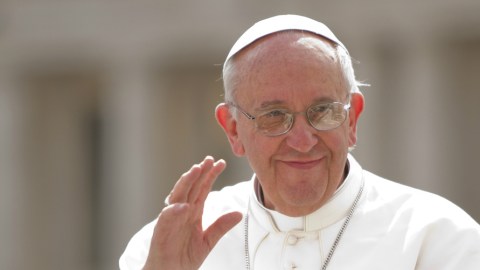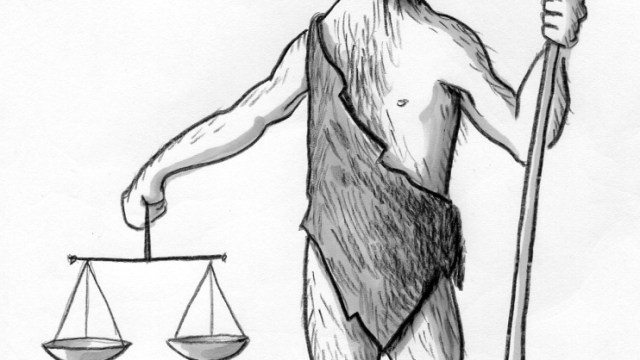Pope Francis Takes Aim at Climate Change and the Gender Pay Gap

This is what happens when you elect a Jesuit to the papacy.
Pope Francis stepped up his social-justice agenda this week by addressing two major global issues: climate change and the gender pay gap.
On Tuesday, the pontiff hosted a one-day summit with top Vatican officials in preparation of “a highly influential encyclical on environmental degradation and the effects of human-caused climate change on the poor,” according to The New York Times.
On Wednesday the pope “called the gender pay gap a ‘pure scandal’ in remarks on marriage and family,” according to NPR:
“Francis raised his voice as he made a plea for an end to the situation in which men typically earn more than women for performing the same task.”
While most feminists won’t pay much heed to supportive words from an organization that precludes women from leadership positions, and others would debate that the gender pay gap isn’t as wide as reported, the pope’s statement is more than the weight of its contents. NPR‘s Sylvia Poggioli notes that these were among Francis’ “most forceful yet in favor of women” and reflect a shift in the Vatican’s rhetoric regarding family structure.
As for climate change, the Times article above places a pointed focus on how American conservatives are reacting to Francis’ progressivism. The pontiff is set to tour the United States this year and it’s to be expected that he won’t soften his rhetoric when speaking in front of conservative crowds:
“Speaker John A. Boehner, Republican of Ohio, invited the pope to speak to Congress, but some Catholics say that Mr. Boehner should prepare for some uncomfortable moments. Mr. Boehner, who is Catholic, has often criticized the Obama administration for what he calls its ‘job killing’ environmental agenda.”
Francis’ environmental campaign will be unprecedented — could you even imagine Pope Benedict XVI doing something similar? — but the pontiff feels strongly that climate change poses a major threat to the world’s poor, and that it falls on developed nations to do something about it.
Read more at NPR & The New York Times.
Below, author Charlene Li explains how Francis leverages new media to reach broader audiences:




